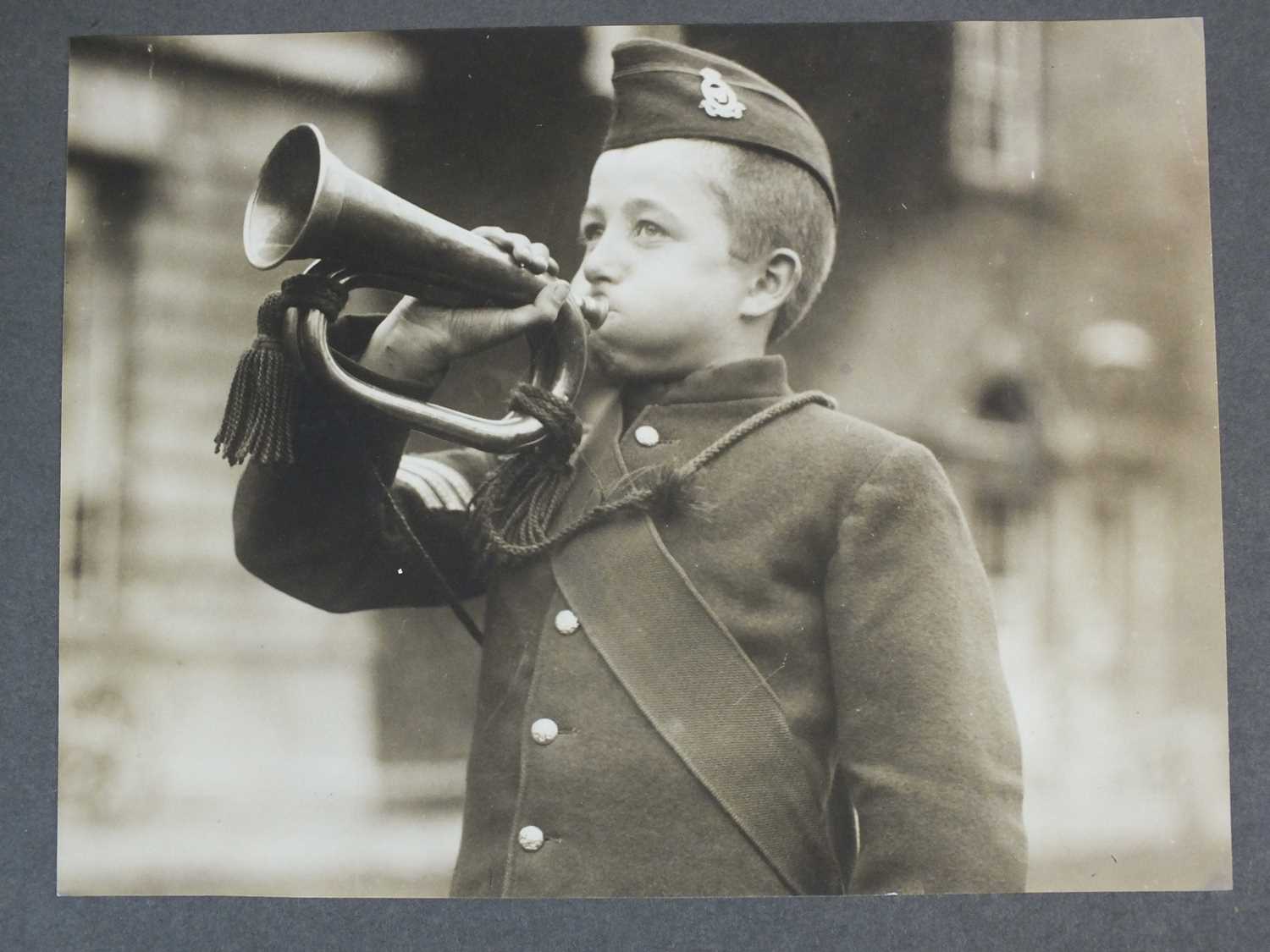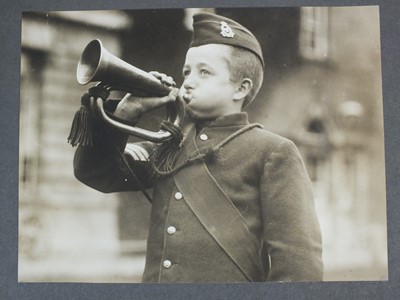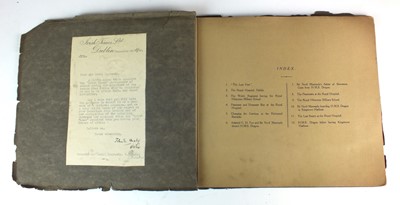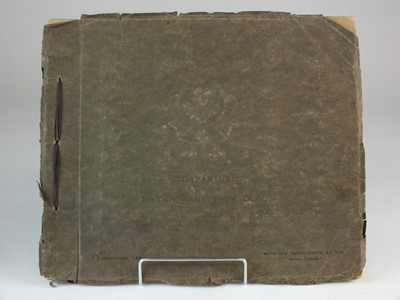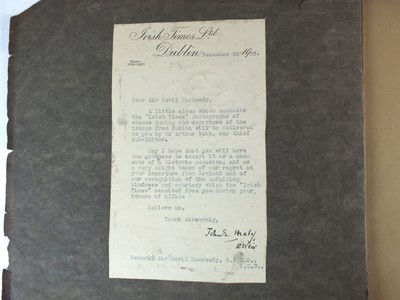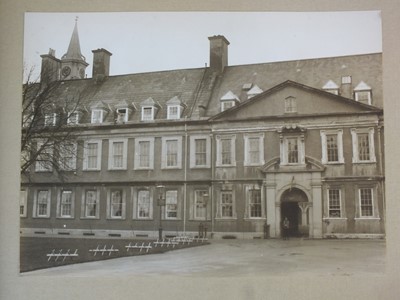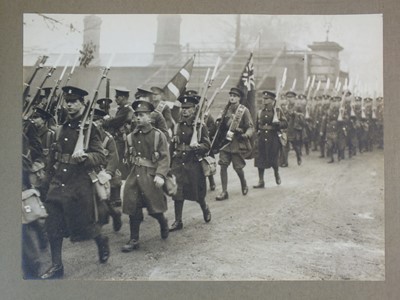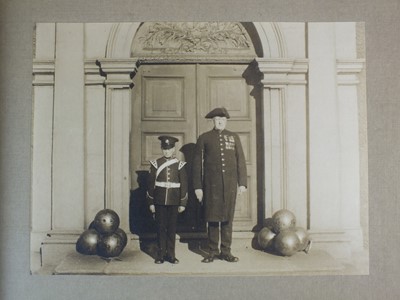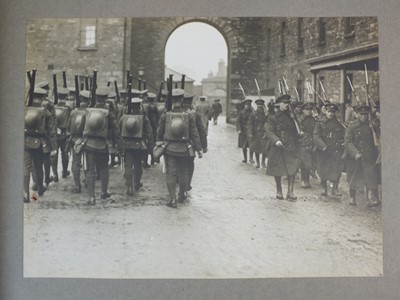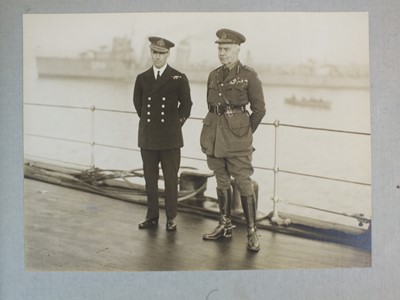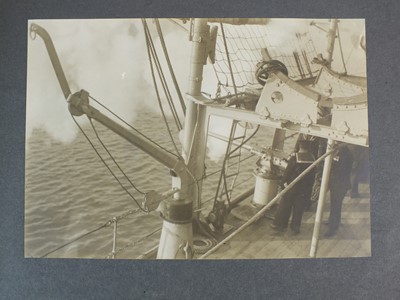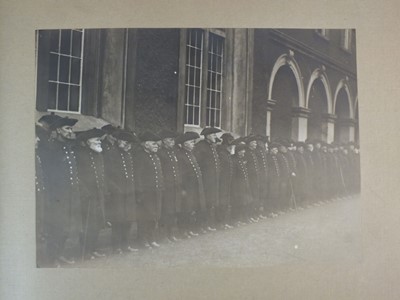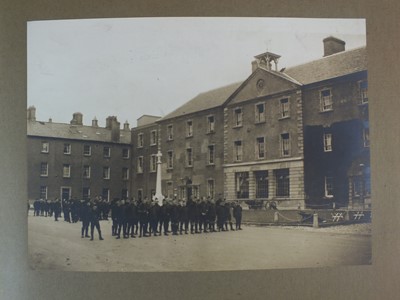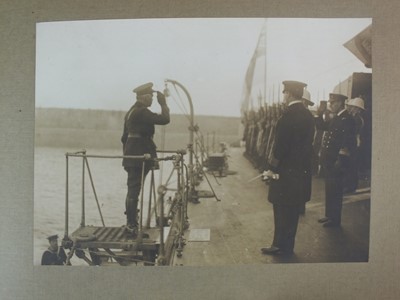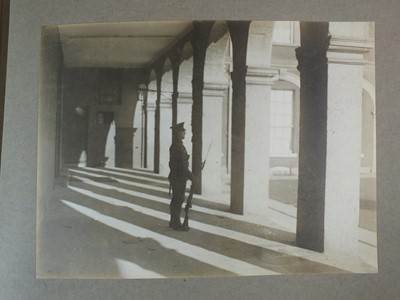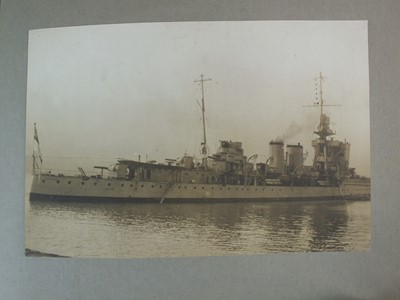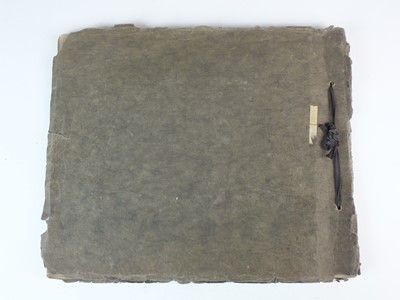Ending 2nd Aug, 2022 16:00
Timed Auction - Militaria
Photograph album - Departure of the British Army from Dublin, 1922
"Departure of the British Army From Dublin”, 1922
A unique personalised album of twelve photographs each measuring 8 x 6", gifted from the Irish Times to General Sir Cecil Frederick Nevil Macready, 1st Baronet, GCMG, KCB, PC.
The album contains a pasted-in letter addressed to Sir Nevil Macready which reads: 'A little album which contains "The Irish Times" photographs of scenes during the departure of the troops from Dublin will be delivered to you by Mr Arthur Webb, our Chief Sub-Editor. May I hope that you will have the goodness to accept it as a memento of a historic occasion, and as a very slight token of our regret at your departure from Ireland and of our recognition of the unfailing kindness and courtesy which the "Irish Times" received from you during your tenure of office ? Believe me, Yours sincerely, (signed) John S. Healy Editor'
The index of photographs is as follows: 1. "The Last Post"; 2. The Royal Hospital, Dublin. 3. The Welch Regiment leaving the Royal Hibernian Military School. 4. Pensioner and Drummer Boy at the Royal Hospital. 5. Changing the Garrison at the Richmond Barracks. 6. Admiral C.H. Fox and Sir Nevil Macready aboard H.M.S Dragon. 7. Sir Nevil Macready's Salute of Seventeen Guns from H.M.S Dragon. 8. The Pensioners at the Royal Hospital. 9. The Royal Hibernian Military School. 10. Sir Nevil Macready boarding H.M.S Dragon in Kingstown Harbour. 11. The Last Sentry at the Royal Hospital. 12. H.M.S Dragon before leaving Kingstown Harbour.
Notes: In April 1920, General Macready was appointed General Officer Commanding-in-Chief of British forces operating in the counter-insurgency role against the Irish Republican Army in the Irish War of Independence. Macready was extremely reluctant to take the job, stating that he “loathed Ireland and the Irish more even than he hated the Germans”.
Despite this, Macready accepted the challenge principally as a favour to his old chief, Lord French. Macready’s work in Ireland did much to reinvigorate the garrison by boosting morale, heightening efficiency and providing much-needed support, such as motor transport. However, his refusal to take on the command of the police alongside the army fundamentally undermined the overall security effort, as did his condoning of the rough-and-ready tactics of the Royal Irish Constabulary and their semi-military reinforcements in the ‘Black and Tans’.
Macready made it clear to the British government that without a drive of Cromwellian severity (which was politically quite unacceptable) no military solution was possible in Ireland. Unlike his friend and colleague Sir Henry Wilson, Chief of the Imperial General Staff, Macready recognised the necessity of trying to negotiate some sort of settlement with the Irish Republican leadership. After the Anglo–Irish treaty of December 1921, he superintended the evacuation of the British garrison without serious incident.
Sold for £750
